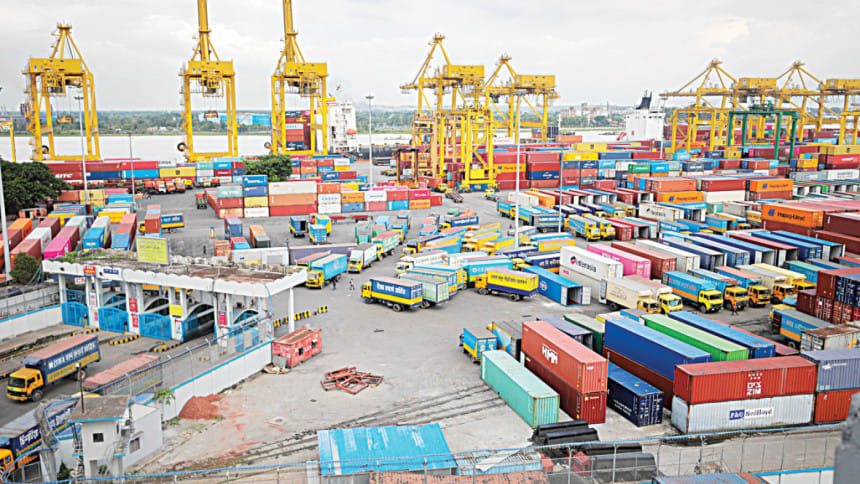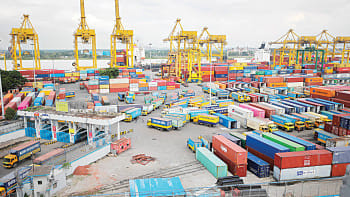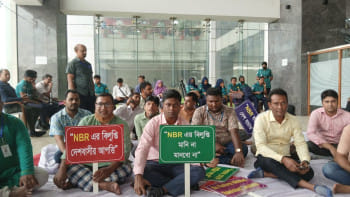A call for calm to protect Bangladesh’s global reputation

As a proud contributor to Bangladesh's RMG sector, I write this with deep concern about the path our industry and country are taking. In recent months, and indeed over the past several years, we have witnessed waves of strikes, protests, and unrest, from factory gates to the heart of government offices.
While the right to protest must always be upheld in any functioning democracy, the scale and frequency of disruption in the country are fast becoming endemic. And it is affecting our global standing as a reliable sourcing hub.
The RMG sector is the backbone of our economy, accounting for more than 80 percent of export earnings and employing over 40 lakh people, the vast majority of whom are women. Our growth story has been remarkable, built on hard work, resilience, and an ability to deliver quality apparel to some of the world's most discerning retailers, often under intense pressure. But reputation is fragile, and in today's global marketplace, trust and consistency matter more than ever.
Recent developments give serious cause for alarm. A prolonged strike by customs officials at Chattogram Port, the country's main gateway for export and import, just recently paralysed trade for six days, stalling the flow of goods worth billions. Dozens of containers sat idle. Export orders were delayed. Importers scrambled to find out when raw materials would arrive, while trade was brought to a halt. The impact reverberated throughout our supply chains.
Simultaneously, political protests and sit-ins disrupted work at the National Board of Revenue (NBR) and even the Ministry of Finance. Officials at the Secretariat could not reach their offices. Basic decision-making was delayed. Meanwhile, businesses were left waiting for answers on tax and customs procedures. In the RMG sector, where just-in-time delivery and razor-thin margins are the norm, such disruptions create anxiety and distrust among global buyers.
Over the past year, we have seen recurrent protests over wages, infrastructure bottlenecks, power shortages, political confrontations, and bureaucratic strikes. Each time the headlines travel, brands take notice, and procurement teams discuss risk. In boardrooms across Europe and North America, sourcing executives consider whether orders should be shifted to countries with more predictable environments.
We must not take our current position in global supply chains for granted. Other countries are moving fast. India, for example, is actively signing bilateral and multilateral free trade agreements (FTAs) to increase its export competitiveness. It has finalised an FTA with the UAE, signed another with Australia, and is in advanced talks with the UK and the EU. These deals bring lower tariffs, faster market access, and stronger buyer confidence. At the same time, Indian states are investing in infrastructure, logistics, and digital customs systems to streamline operations. Vietnam and Indonesia, too, are investing in stability and reform to attract long-term sourcing partnerships.
Bangladesh, by contrast, is in danger of being seen as a high-risk, high-friction sourcing environment. While our labour cost advantage remains attractive, it is increasingly offset by concerns over stability and governance. Long-standing issues around port congestion, customs inefficiencies, and inconsistent tax policies are now compounded by industrial unrest and bureaucratic standstills. These are not the foundations on which we can build the next phase of industrial growth.
What we need now is calm and a shared recognition that our future depends on collaboration, not confrontation.
I urge the policymakers to resolve administrative disputes swiftly and transparently. Customs strikes must never again be allowed to halt the lifeblood of our trade. While the recent decision to turn the NBR into an autonomous revenue authority has merit, such institutional reforms must be managed carefully, without disrupting trade or paralysing key functions. I also call for more dialogues between ministries and private sector stakeholders before policy shifts. An unstable regulatory environment deters investment.
To political leaders, I say: your choices shape how Bangladesh is viewed on the world stage. Escalating confrontations only undermine confidence. We need all parties to prioritise economic stability and social cohesion over partisan gains. To workers and labour organisations, I ask to pursue channels of engagement that avoid shutdowns of production. Disruption cannot be our default mode of dialogue.
And to my fellow manufacturers: we must look inward, too. We need to raise our standards, listen to our workforce, and build trust in our factories. Industrial peace is not a given; it must be earned through transparency and accountability. At the same time, we should unite for a national industrial strategy that supports our competitiveness, through better infrastructure, tax reform, access to finance, and trade diplomacy.
The road ahead is not easy. Global demand is softening. Geopolitical tensions are growing. Sustainability expectations are rising. In this environment, our ability to compete depends not only on price or productivity but also on reliability and reputation. Bangladesh must be known not as a nation of perpetual unrest, but as a nation of resilience, pragmatism, and progress. Let this be a turning point towards lasting stability and collective responsibility.
Mostafiz Uddin is the managing director of Denim Expert Limited. He is also the founder and CEO of Bangladesh Denim Expo and Bangladesh Apparel Exchange (BAE).
Views expressed in this article are the author's own.
Follow The Daily Star Opinion on Facebook for the latest opinions, commentaries and analyses by experts and professionals. To contribute your article or letter to The Daily Star Opinion, see our guidelines for submission.

 For all latest news, follow The Daily Star's Google News channel.
For all latest news, follow The Daily Star's Google News channel. 










Comments